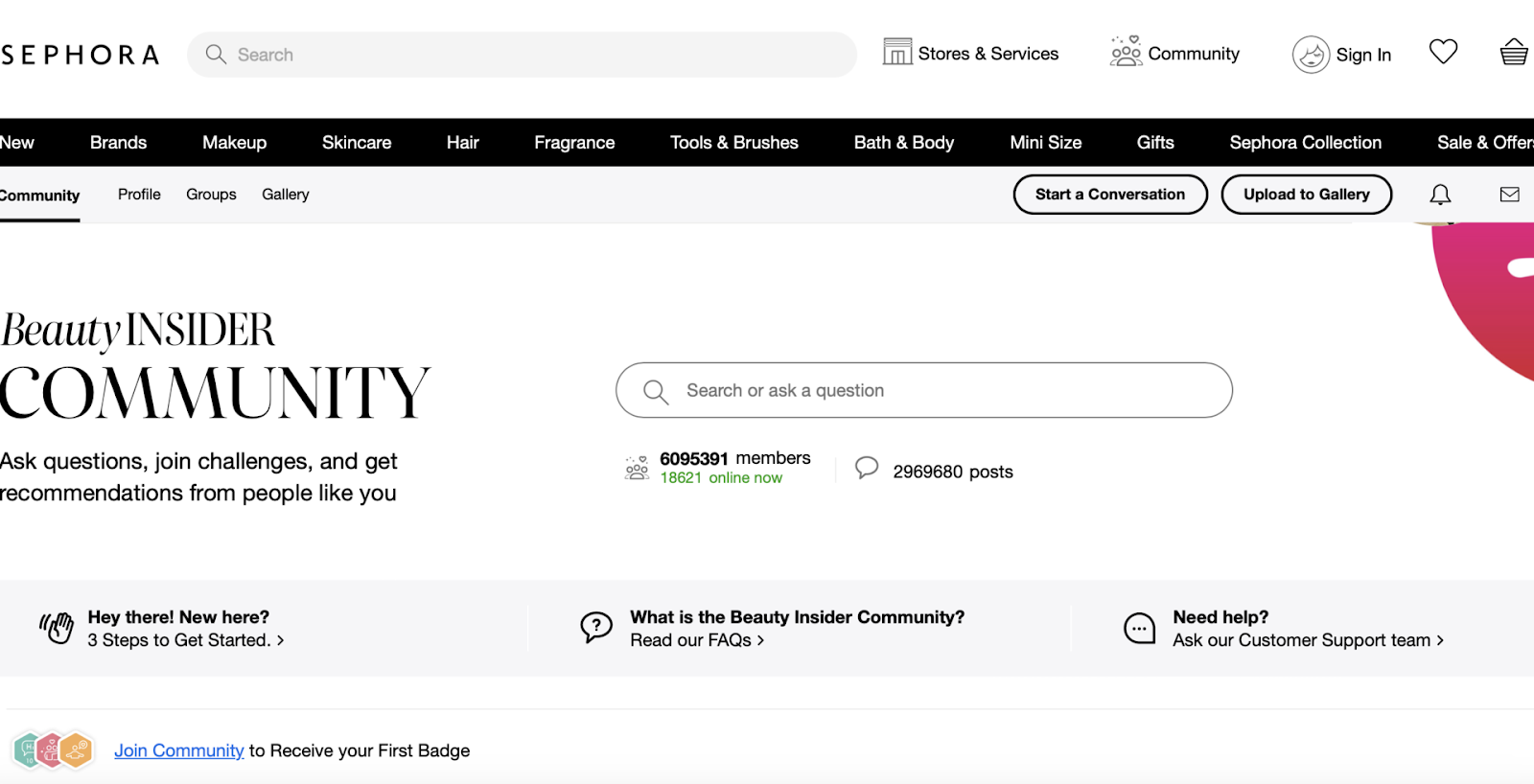
There’s a reason why every company of a certain size has a blog, and it’s the same reason why every company should have one: Starting a blog is one of the most effective ways to grow your brand in today’s increasingly digital marketplace.
It’s hard to overstate the importance of having a blog for business. What started as a lark in 1997 has become necessary for any company looking to position itself competitively in nearly every industry. And the process for how to start a blog for your business is likely easier than you think.
Blogs, shortened from “weblog,” started as little more than online personal diaries. In the early days of the internet, writers would “log” their online activities, encouraging connection and collaboration. Today, the act of blogging goes well beyond a digital journal. It’s now a way to attract and find potential customers where they are — online.
However, as a writer and marketing consultant for the last 25 years, I’ve met many small- and medium-sized business owners who hesitate to start a blog because they don’t know the steps to take. They fear it’s too much work or that it will do more harm than good. That’s where this guide will help. I’ll share what I know about blogging so you can confidently start a blog.
Why is it important to start a blog for your business?
Without a doubt, starting a blog does take time to plan and execute — so let’s begin with some motivation to understand precisely why it’s so important to have this kind of content as part of your marketing strategy.
Blogs serve many functions for your business:
- Improve your SEO. When you integrate keywords people use in search engines like Google, blogs can drive traffic to your website. Keywords are short phrases that the search engine algorithm scans the internet for on behalf of the searcher. This work is part of a complex process called search engine optimization, or SEO.
- Grow your email list. When blogs are entertaining, educational, and informative, people will want to read them. This is a strategy to grow your email list and an opportunity to convert leads into sales.
- Create content for social media. If you have a social media presence, you’re likely always looking for content to post. Links to blogs are a rich and robust addition to any social media feed.
- Grow your brand awareness. If someone is looking for information on a topic you wrote about in a blog, they’ll get their answers from your blog and learn about your business at the same time. That’s an essential first step in any customer journey.
- Become an industry expert. Your marketing plan should focus on what makes you first, better, or different. However, that’s not always easy to demonstrate. When you have an in-depth blog that shows your expertise on all subjects about your industry, it’s a given that your company is the obvious choice for prospective customers.
- Strengthen relationships. Blogs help you engage in a meaningful conversation by providing a free service to the people who are already paying attention, which can turn them into loyal, lifelong customers.
And perhaps the best thing about blogs is that they can serve as a driver for long-term results. When done correctly, blogs are evergreen, meaning they will continue to be valuable over time, like a tree that never loses its leaves.
Steps to start a successful blog for your business
Maybe you’re already sold on small business blogging but want the practical steps to make it happen. Before you begin working through the action plan laid out in this guide, set aside time with your company’s marketing team and decision-makers to craft a formal blog strategy for your business.
Have your first deliverable be a document outlining everything you plan to accomplish with your business blog.
Starting a blog is a creative process that won’t happen instantly. The more time and brain power you put in during the planning stages, the easier everything will be to execute.
Define your blog’s purpose and goals
I’m a big fan of Stephen R. Covey’s book “The 7 Habits of Highly Effective People,” which states that it’s best to always start with the end in mind. So answer this about your blog strategy: What is your purpose for doing this work?
Once you determine your blog’s purpose, you can refer to this overarching goal to ensure you stay on track. A goal should also be SMART: specific, measurable, attainable, relevant, and time-bound.
Start here and then break the work into practical objectives you can integrate into the weekly workflow.
Identify your target audience
The question isn’t, “How do you start a blog?” but “Who do you want to read it?” You cannot reach your target audience if you haven’t worked to narrow down exactly who that is. When you know your ideal customer, it’s much easier to reach that type of person with blog articles.
Resist the urge to try to write for everyone. The reality is that specific segments of the population appreciate different tones, types of content, topics, and writing styles. If you want to reach investment bankers, you’ll have a very different blog from someone interested in reaching college students.
Develop a content strategy
Once you know your target audience, you’ll also have a good idea about what they want to read about. Use this information — their pain points, interests, common questions about your products and services, ignorance about your industry, etc. — to develop a content strategy for your small business blog.

One way to determine your content strategy is to research your competition. Look at their blogs critically for inspiration and ideas on how to improve your work. Still, feel free to develop your own voice and tone. Authenticity is important.
Set up your business blog
Next, you’ll want to get the infrastructure work complete. That means deciding where you will host your blog, how you want to publish it, and all the other nitty-gritty details that come with setting up a blog for business.
Choose a blogging platform
One of the most common questions under the umbrella of knowing how to start a blog for your business is which platform is best. Options include Blogger, Medium, WordPress, Tumblr, and more. But which one should your business choose?
Professionally, I always recommend WordPress. It integrates well with most websites and has a nice selection of well-designed themes. However, it’s not the most user-friendly. You may want to start with a platform that’s easier to use if you don’t work with a professional to set yours up. Investigate the different options before diving in, as changing platforms after your blog is up and running can be challenging.
Implement a blog theme
A theme is a template that creates the design for readers to view your blog. Depending on the platform, themes can be free or cost money. They range from plain and simple to colorful and complex.
Pick one with a tone and color palette that complements your brand and will appeal to your target audience. Once you’ve chosen a theme, the blog content you create will live inside this theme so that readers see an appealing visual on the screen.
Get a hosting plan
Suppose you’ve chosen WordPress and found a theme you like. You’ll still need to pay a company to host this blog somewhere online. You can likely integrate your blog on your business’s website. If not, you’ll need to purchase a hosting plan.
While there are many options for blog hosts online, look for one that’s robust enough for your strategy. Some hosts only allow a limited number of monthly viewers, so ensure yours can grow over time. If you don’t own a URL already for your business blog, you’ll need to purchase this as well.
Include essential pages
While it’s better to start simple when creating a blog from scratch, it’s still a good idea to consider organizing topics within different pages. For example, I’ve seen robust personal blogs that feature travel tips, recipes, home décor ideas, and parenting advice all in one blog. When you separate different topics into different pages, you give your readers a service they’ll appreciate.
Create a content calendar and stay consistent
An often overlooked yet vitally crucial element of your blog infrastructure is what’s known as an editorial calendar. This spreadsheet document outlines your blog post ideas with clarity and structure. This will help you plan the next six months to a year of blog articles. A clear posting schedule will help you avoid scrambling at the last minute to get a blog published.
To create this document, fill in a spreadsheet with the following columns:
- Date of publication
- Blog topic
- Blog post title
- Author
- Due date from the author
- Word count
- Keywords to include
- Editor
- Due date from the editor
- Locations where the blog will be published, including all associated social media accounts
- Other notes
Once you’ve created your content calendar with all your blog post ideas, it’s paramount that you stick with it! Once your readers see that you post every week, every other week, or once a month, they’ll expect it. It’s better to post every other week for months than to post three times in one week and then nothing for the next month, so stay consistent.
Encourage interaction and feedback
If you aren’t getting interaction, it may feel like you’re posting blogs into the void. This can make it difficult to know if you’re reaching your target audience. That’s why it’s a great idea to encourage feedback from your current customers and any readers who might discover your blog.
This is the start of creating online communities that, with time, will support your business. Don’t be shy about asking for ways to improve, ideas for a future blog topic, or any other thoughts on your new initiative.
Try sending a survey to your email list to garner feedback and reach out through your social media platforms. Listen and integrate their thoughts as you refine your blog.
Demonstrate your expertise
As you learn how to start a blog for your business, remember the adage to write about what you know. And you likely know your company and your industry better than anyone else. So don’t be afraid to position yourself as the expert you are. People want to learn from you; now, you have a platform to share your wisdom.
Answer common questions and provide a step-by-step guide for common tasks your customers want to accomplish. Some business owners worry that they’re giving away their secrets, but the reality is that most people are willing to pay a professional to do the job right even if they know — basically — how to do it. Use your blog to prove that you know your work, whatever it may be.
Optimize your blog for search engines
I’ve mentioned keywords a few times, and search engine optimization is critical to any blog. If you don’t have the exact words people use when searching for blogs on the topics you cover, they won’t find you through Google or other search engines.
Use keyword tools to research the best keywords to integrate into your blog posts. While some of these tools require subscription fees, free ones like Google Keyword Planner work well, too. Add these keywords to your title and weave them naturally into your content.
Promote your blog content on various platforms
Once you publish your blog on the platform of your choice, you’ll want to alert your larger audience to it. Add a link to the blog on your social media channels and send it to your email list. Make a big deal about the publication. Your blog is a big deal!
Track and analyze your blog’s performance
Remember those goals you set at the beginning of this process of learning how to start a blog for your business? You’ll also want to set a few metrics to track, starting with a baseline and then monitoring your success over time.
Stay realistic; a blog can take time to catch on. Content marketing is a slow, long-term strategy, but it works.
One way to track your blog’s success is through Google Analytics. By integrating their free tools, you can see how many people visit your blog and how they interact with it. You can track how many readers click through to the links you add to the blog and other phases of the customer journey.
How to plan blog posts
If you’re like many of my clients, you just quickly skimmed the content calendar section. But whatever you do, plan your blog posts! Otherwise, you’ll end up chasing your tail at the last minute.
Business owners are busy, and blogs are easy to push to the back of the desk. For this work to achieve your goals, you must plan.
Brainstorm and outline potential blog topics
Gather your most creative and customer-focused team members in a dedicated brainstorming session. Ask them beforehand to generate 10 great ideas that your customers care about. You may be surprised by how easy filling up your content calendar is.
Also, look at your competition’s blog posts for inspiration. Suppose you have a restaurant blog. Just because another restaurant shares a recipe doesn’t mean you can’t. Those blog posts will be very different because your recipes are different.
Use content pillars and categories for organization
Those essential pages within your blog theme can come in handy as you figure out how to craft your blog. When you create pillars of specific content and designated categories for blog topics, it’s easier to come up with a variety of ideas.

Plus, when you organize them neatly within your blog, your readers can quickly search and browse your blog for exactly what interests them. Remember, you’re creating a resource for your target audience. That’s different than telling them what you think they should learn about.
Consider evergreen and trending content ideas
Some blog topics are obvious. For example, if you own a retail store, you will likely want to have a blog on hot holiday gift ideas. If you own a business focused on families with children, you’ll likely want to have a blog on summer fun. These are trending topics.
However, include those “good all year long” evergreen topics, too. Think about subjects that are always interesting to your readers and add them to your calendar.
Monitor industry trends
Keep current with industry trends and news events that may impact your target audience — and be open to amending your content calendar when necessary. While these trending articles aren’t evergreen, they show that your business is at the forefront of what’s new. Readers will appreciate any industry updates you share in your blog, so weave in these topics whenever possible.
Engage with your audience for feedback and suggestions
Suppose that, after six months, the metrics prove that no one is reading your blog. Don’t give up content marketing completely. Instead, circle back to your target audience and revisit your content strategy. Experiment with new topics and themes. This process should be dynamic and adaptable as you learn what works and what can be left behind.

How to use curation in a blog
Even if you work with a professional blog writer, changing up the voices featured on your blog is typically a good idea. To do this, you can collaborate with other experts related to your business to offer guest blog posts for your audience.
Curate and share relevant industry news and insights
Let’s say there’s a great industry blog that shares news you think your readers would enjoy. With a blog content curation strategy, you can create a blog with a wrap-up of valuable links to other blogs. You’ll save your readers the time it would otherwise take to search the internet for such important information.
Credit and collaborate with other experts and thought leaders
You could also reach out to other experts who have their own blogs to see if they’d like to create a new post for publication for you. Thought leaders looking to expand their reach often do this for free, saving you time and linking you to another respected industry member.
Credit the author clearly and provide a link for readers to learn more about them.
Provide a unique perspective and analysis of curated content
Finally, don’t just repost great content from other outlets. You likely have your own perspective on whatever is being discussed, and by now, your current and prospective customers have come to trust your expertise. So, share your thoughts and help your readers gain a deeper perspective and understanding.
This is a powerful way to strengthen your relationships and engagement with your company.
Leverage a business blog to maximize your content marketing strategy
Blogs are powerful tools for businesses to enhance their content marketing strategies and grow their influence over time. When you thoroughly plan your blog’s infrastructure and content calendar, you front-load the work and set yourself up for success when it’s time to publish.
Now that you know how to start a blog for your business, take the first step: Scroll the web for as many blogs as possible that interest you. See how the blogger or business marketing professional organized their blog. Look at the topics and see where you could use your expertise to expand. Ask your team members to do the same. Then, schedule a meeting and begin the brainstorming.
You’ll be blogging before you know it!Once you’ve started your blog, make sure to share links with your email list subscribers. Create a curated newsletter to showcase your most recent or popular blog content. To get started with email marketing, sign up for a free trial of Constant Contact today.




